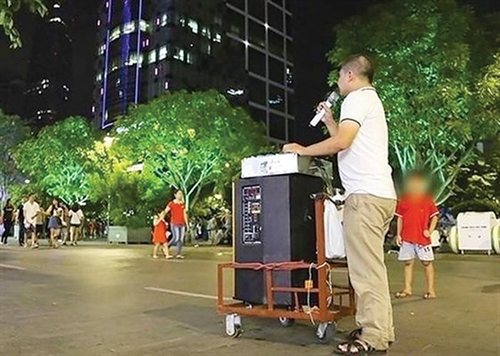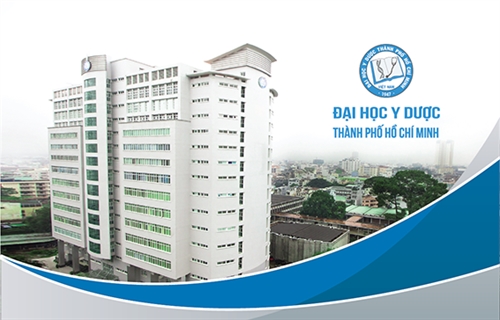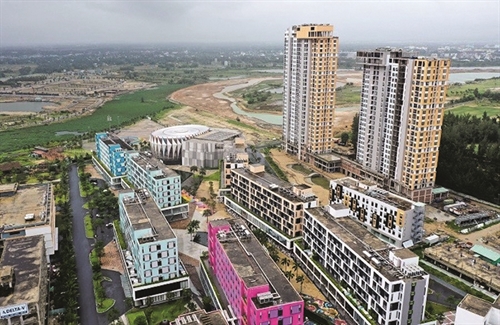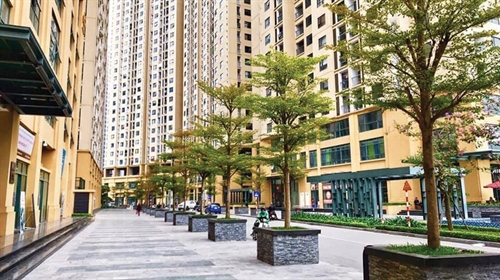In January, local media reported that P.Q.T., a 25-year-old man in Ho Chi Minh City’s Binh Chanh district, was stabbed with a knife and iron tubes by a group of four while singing karaoke with his friends at home.
The perpetrators latter told the police they had been annoyed at the overbearing karaoke sounds from T.’s house for hours before slashing T. and one of his friends. T.’s father jumped into the fight to intercede but was also injured from the attack.
In another case which also happened in January, a family scuffle turned fatal when a 66-year-old man in Vinh Thanh district of Can Tho city complained about his son-in-law’s karaoke singing. After getting a scolding from his father-in-law, N.V.T., aged 43, used a knife to attack the old man and accidentally stabbed his sister-in-law, who tried to restrain the two sides, to death.
Last November, becoming so annoyed about his neighbor rattling off tunes late in the night, N.H.N, a 51-year-old resident in Thanh Tri district, Hanoi, threw a petrol bomb into the singer’s house, causing a great fire. N. himself was burned in the event.
These are among many cases of disputes and fights stemming from unbearable noise produced by karaoke “singers” who choose to show off their “talent” at the comfort of their homes or right on the streets with wireless microphones and mobile speakers instead of going to karaoke parlors. Consequently, a much-loved pastime of some has turned to be a nightmare for many others.
A mother of two toddlers in Ho Chi Minh City’s Thu Duc city told Tuoi Tre (Youth) online that she and her children had to take refuge in her cousin’s house every time her neighbors started singing. “They usually sing at night, using high-capacity speakers and rattling all glass windows. My kids cannot sleep and constantly cry,” she said.
Another reader of Tuoi Tre fell into the same circumstance. “During the New Year festival, the singing often starts at noon and does not stop until midnight. Sometimes the warbling becomes insufferable and we had no choice but to reluctantly go out for a walk,” he told the newspaper’s hotline.
 |
| Singing kaorake with mobile loudspeakers has become rampant in Ho Chi Minh City__Photo: Internet |
Why noise-related violations are still rampant in spite of regulations
There have been too many press articles and TV and radio news reflecting urban residents’ sufferings of karaoke parties in particular and noise pollution in general. In fact, Vietnam, like many other countries, has formulated a relatively complete legal framework regulating noise pollution in residential quarters. The 2020 Law on Environment Protection and its previous versions issued in 2005 and 2014 all contain provisions on management and control of noise pollution. Noise-related administrative violations are governed under two governmental decrees: (i) Decree 167 dated November 12, 2013, on sanctioning of administrative violations in the fields of public security, social order and safety, and prevention and control of social vices, fires and domestic violence, and (ii) Decree 155 dated November 18, 2016, on sanctioning of environmental administrative violations. The national environmental watchdog, the Ministry of Natural Resources and Environment (MoNRE), has also promulgated a national technical regulation on noise, coded QCVN 26:2010/BTNMT.
However, despite the above-mentioned regulations, noise-related violations show no sign of ending. What is the reason behind the situation? Aren’t regulations on noise specific enough or aren’t penalties for violators severe enough to deter them?
At the first glance, current regulations on management and control of noise pollution seem to be very clear. QCVN 26:2010/BTNMT, issued under the MoNRE’s Circular 39 of 2010, specifies that the maximum allowable noise level in normal areas like apartment buildings, detached and semi-detached houses, hotels, guest houses and administrative offices, is 70 dBA from 6am to 9pm or 55 dBA from 9pm to 6am. Those who make noise in excess of the above-said level will be sanctioned.
However, it is not easy to handle noise pollution cases, especially overenthusiastic karaoke singers. In 2019 and 2020, Ho Chi Minh City authorities handled 141 cases of noise-related administrative violations with a total fine of VND 818 million (USD 35,000). Among them, there were only 20 cases of making noise in residential areas with a total fine of merely VND 2.6 million (USD 113).
The first problem lies in the competence to measure the noise level and sanction violators of noise regulations.
According to Nguyen Thi Thanh My, Deputy Director of the Ho Chi Minh City Department of Natural Resources and Environment, noise measurement serving state management purposes, including imposition of fines on noise pollution-related violations, must be conducted by competent agencies or professional units certified by the MoNRE.
Regarding the competence to handle noise-related violations, under current regulations, authorities competent to make records of violations include the Chief of the Inspectorate of the MoNRE; provincial-level People’s Committee chairpersons; chiefs of Inspectorates of provincial-level Departments of Natural Resources and Environment; and specialized police units. Commune-level People’s Committees do not have the power to sanction noise-related administrative violations. Hence, upon receiving a complaint about noise in a residential area, the local authority cannot come to the scene and sanction the violator but has to report the case to district-level agencies such as the Natural Resources and Environment Division and Culture and Information Division. These agencies will then form an inter-agency team to measure the noise level and handle the case.
“The coordination with inter-agency teams as well as the hiring of professional units [to measure the noise level] are time-consuming and complicated,” Phan Dinh An, Chairperson of Ward 6, Go Vap district, Ho Chi Minh City, told Tuoi Tre.
Another problem encountering competent authorities is the selection of the legal ground for handling noise-related violations. The question here is whether these violations will be regarded as breaches of the law on social order and safety under Decree 167 of 2013 or handled under Decree 155 of 2016 on administrative violations in the environmental field.
If Decree 167 is applied, rowdy persons will just face a tiny fine. Accordingly, those who make loud noise or commotion in residential areas or public places between 10pm and 6am will be subject to warning or a fine of VND 100,000-300,000 (approximately USD 4-12).
In case violators are governed by Decree 155, they might be imposed a fine of up to VND 160 million (around USD 6,950), a tremendous increase compared to the fine level provided in Decree 167. However, if wishing to apply Decree 155, authorities must obtain measurement results from functional agencies or professional units. It is not to mention the fact that current regulations say nothing about measurement of the ambient noise level, making it difficult to impose fines on violators.
Measures against noise hotspots in residential areas
Lawyer Truong Thanh Duc from ANVI Law Firm proposes banning activities creating loud noise, including rowdy karaoke singing, in residential areas. In addition, the fine imposed on these activities should be increased 10 times the current level to VND 1-3 million and those who repeat their violations should be subject to more severe penalties and confiscation of noise-generating equipment and devices.
Associate Professor Nguyen Minh Hoa, Vice President of the Ho Chi Minh City Urban Planning Development Association, recommends another measure: assigning the task of handling noise-related violations to the environmental police task force.
In a recent meeting held by the Ho Chi Minh City People’s Committee to discuss measures against noise in residential areas, the municipal Department of Natural Resources and Environment proposed a two-stage process for dealing with this problem.
The first stage will focus on public communication and law dissemination and education, aiming to mobilize people and business establishments to comply with regulations on noise in residential areas.
At the second stage, competent authorities will further the inspection work and handling of noise-related violations so as to eliminate noise pollution in residential areas. Commune- and district-level People’s Committee chairpersons and commune/ward/township police chiefs will be held responsible before their superiors if noise hotspots re-occur in their localities.- (VLLF)









